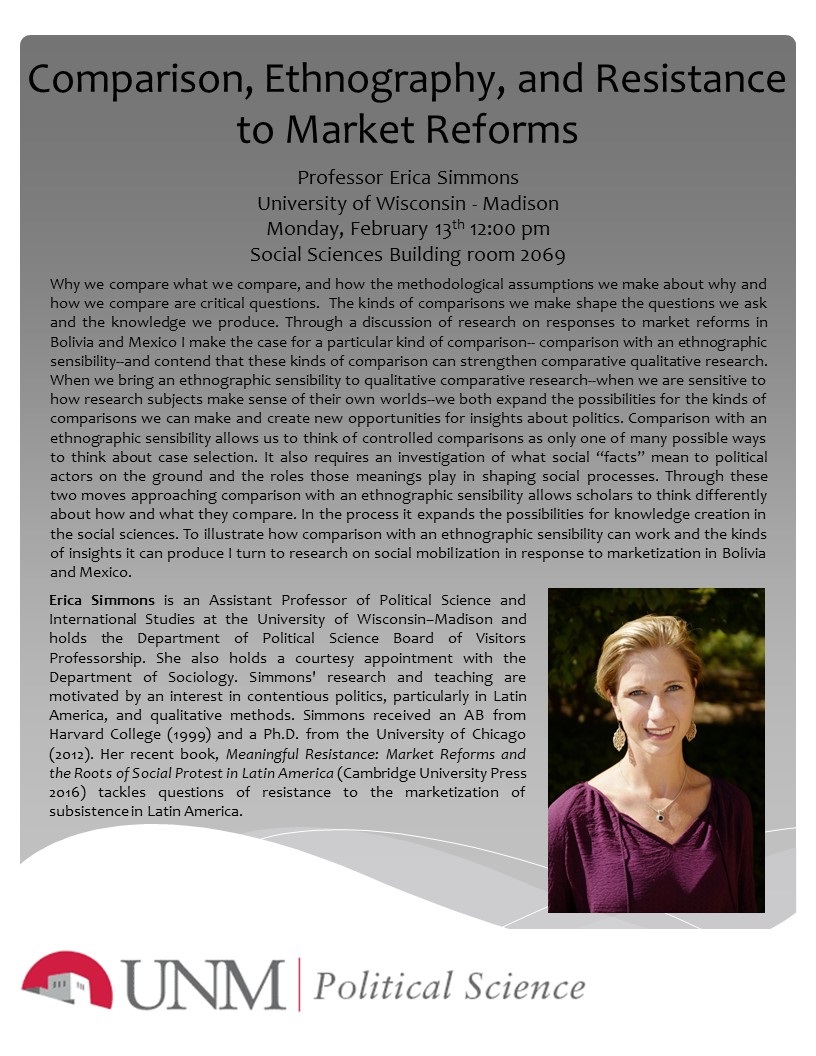Distinguished Speaker Series: Dr. Erica Simmons
Departmental Event

Start Date: Feb 13, 2017 - 12:00pm
Why we compare what we compare, and how the methodological assumptions we make about why and how we compare are critical questions. The kinds of comparisons we make shape the questions we ask and the knowledge we produce. Through a discussion of research on responses to market reforms in Bolivia and Mexico I make the case for a particular kind of comparison-- comparison with an ethnographic sensibility--and contend that these kinds of comparison can strengthen comparative qualitative research. When we bring an ethnographic sensibility to qualitative comparative research--when we are sensitive to how research subjects make sense of their own worlds--we both expand the possibilities for the kinds of comparisons we can make and create new opportunities for insights about politics. Comparison with an ethnographic sensibility allows us to think of controlled comparisons as only one of many possible ways to think about case selection. It also requires an investigation of what social “facts” mean to political actors on the ground and the roles those meanings play in shaping social processes. Through these two moves approaching comparison with an ethnographic sensibility allows scholars to think differently about how and what they compare. In the process it expands the possibilities for knowledge creation in the social sciences. To illustrate how comparison with an ethnographic sensibility can work and the kinds of insights it can produce I turn to research on social mobilization in response to marketization in Bolivia and Mexico.
Erica Simmons is an Assistant Professor of Political Science and International Studies at the University of Wisconsin–Madison and holds the Department of Political Science Board of Visitors Professorship. She also holds a courtesy appointment with the Department of Sociology. Simmons' research and teaching are motivated by an interest in contentious politics, particularly in Latin America, and qualitative methods. Simmons received an AB from Harvard College (1999) and a Ph.D. from the University of Chicago (2012). Her recent book, Meaningful Resistance: Market Reforms and the Roots of Social Protest in Latin America (Cambridge University Press 2016) tackles questions of resistance to the marketization of subsistence in Latin America.
